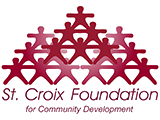The St. Croix Foundation’s Education First series has generated a great number of positive responses from our community. The following editorial was submitted to the Foundation by Alan Smith of St. John, along with the following comment: “…unless and until we recognize that education is a community responsibility, encourage real dialogue and adopt an attitude of learning, our present crisis will continue until the system collapses because it can no longer serve the interests of all.”
As technological innovations rapidly reduce or eliminate jobs, we must understand that education is more than training a person to find employment or pursue higher education. Education is a process that empowers individuals to discover the “gems of inestimable value” latent within them. Education cannot continue as a commodity produced by an industry that is focused on students’ standardized tests scores or measures a teacher’s performance by his students’ test scores. Rather, education must become a process through which all develop ever increasing capacity and skills needed to serve their community. That is, we must have an educational system that instills in children, parents and teachers an abiding appreciation that they are part of a community; a community that can only be sustained through interdependence, cooperation, reciprocity and respect for the contributions of all. The obsolete 19th scarcity,century notions of rugged individualism, competition and survival of the fittest must be abandoned. Such notions must be replaced by an ethos and pedagogy that pivots around the concept that humanity and the environment are both essential elements of an organic whole.
This is not to say that people will not or should not have to work for a living or that the material needs of a community can be met without employees, entrepreneurs and government services. Our educational system must continue to provide the necessary fundamentals of math, science, reading, etc. To be effective, however, our educational system must also ensure that every child learns what it means to be a contributing member of a community. Our children must be so educated that they know who they are, to what purpose they exist, how they should act towards one another and once they know the answers to these questions, they need to be helped to gradually apply these answers to everyday behavior. Teachers will necessarily require similar education. Teacher education must empower teachers to be miners of “gems of inestimable value”.
So, how is this supposed to happen? As with all human institutions, fundamental systemic change occurs when crisis forces us to adopt new attitudes. Perhaps our crisis will stimulate the following five attitude changes. First, if we are to educate the whole person, a general consensus must be developed and fostered that views education as both material and spiritual. Second, teachers must be valued as highly as the chief executives in business and government for without teachers there would be no chief executives. Third, teachers must view their profession as the most meritorious of all deeds; nothing less than an act of worship or prayer. Fourth, the community must regard the education of every child as its collective responsibility. And fifth, every parent and potential parent, which means every student, must be trained to take responsibility for the educational preparation of their child and stay engaged in his or her child’s educational journey.
Changing attitudes is a tall order that is always resisted. If, however, we refuse to change our attitudes the fundamental and systemic educational transformation we desire will not occur and the decline in the quality of our community life will continue unabated. Finally, we cannot continue to deny that “children are the most precious treasure a community can possess, for in them are the promise and guarantee of the future. They bear the seeds of the character of future society which is largely shaped by what the adults constituting the community do or fail to do with respect to children. They are a trust no community can neglect with impunity.”
For more information on the Foundation’s Education First series or how to join the conversation, please call 773.9898.
